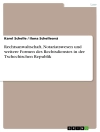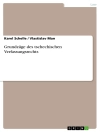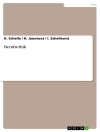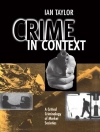This book examines the changes in the governance of human expression as a result of the development of the Internet. It tells the story of the emergence of a global regime that almost completely lacks institutions, and develops a concept of ‘expression governance’ that focusses on the governance practices of key actors in Europe and North America. The book illuminates the increased disciplinary capacity of the Internet infrastructure that has become apparent to the public following Edward Snowden’s leaks in 2013, and provides a theoretical frame within which such changes can be understood. It argues that the Internet has developed a ‘global default’ of permissible speech that exists pervasively across the globe but beyond the control of any one actor. It then demonstrates why the emergence of such a ‘global default’ of speech is crucial to global conflict in the international relations of the Internet. The book concludes with an elaboration of the regulatory practices and theatricalperformances that enable a global regime as well as the three key narratives that are embedded within it.
Tabla de materias
Preface.-List of Abbreviations and Acronyms.- List of Figures and Images.- I. Governing Internet Expression: An Introduction.- II. Towards a theory of information control: Content regulation, disciplinary capacity and the governance on the Internet.- III. Internet technologies increasing ability to control: The development of disciplinary capacity in the past two decades.- IV. The Public Sector and Content Regulation: Focussing on Pornography and Child Sexual Abuse Material.- V. The Private Sector and Content Regulation: The Margin of Permissible Expression.- VI. Governing Internet Expression: Sketching out the Borders of a Global Default of Freedom of Expression.- VII. Global Expression Governance: The norms of a global regime.- VIII. Symbolic Power and Legitimacy Theatre: Constructing Legitimacy in Global Internet Governance.- VIV. Conclusion: Logics of appropriate Governance in Internet Governance and Global Governance.- Additional Sources and Interviews.
Sobre el autor
Ben Wagner, Ph D is the Director of the Centre of Internet & Human Rights (CIHR). His research focuses on human rights and technology, ethics and governance of algorithms as well as the disconnection of communications networks. Ben holds a Ph D in Political and Social Sciences from European University Institute in Florence. He was previously a post-doctoral research fellow at University of Pennsylvania and a Visiting Fellow at Human Rights Watch, Humboldt University and the European Council on Foreign Relations. His research has been published in Politics, Telecommunications Policy, JITP and the International Journal of Communications.












